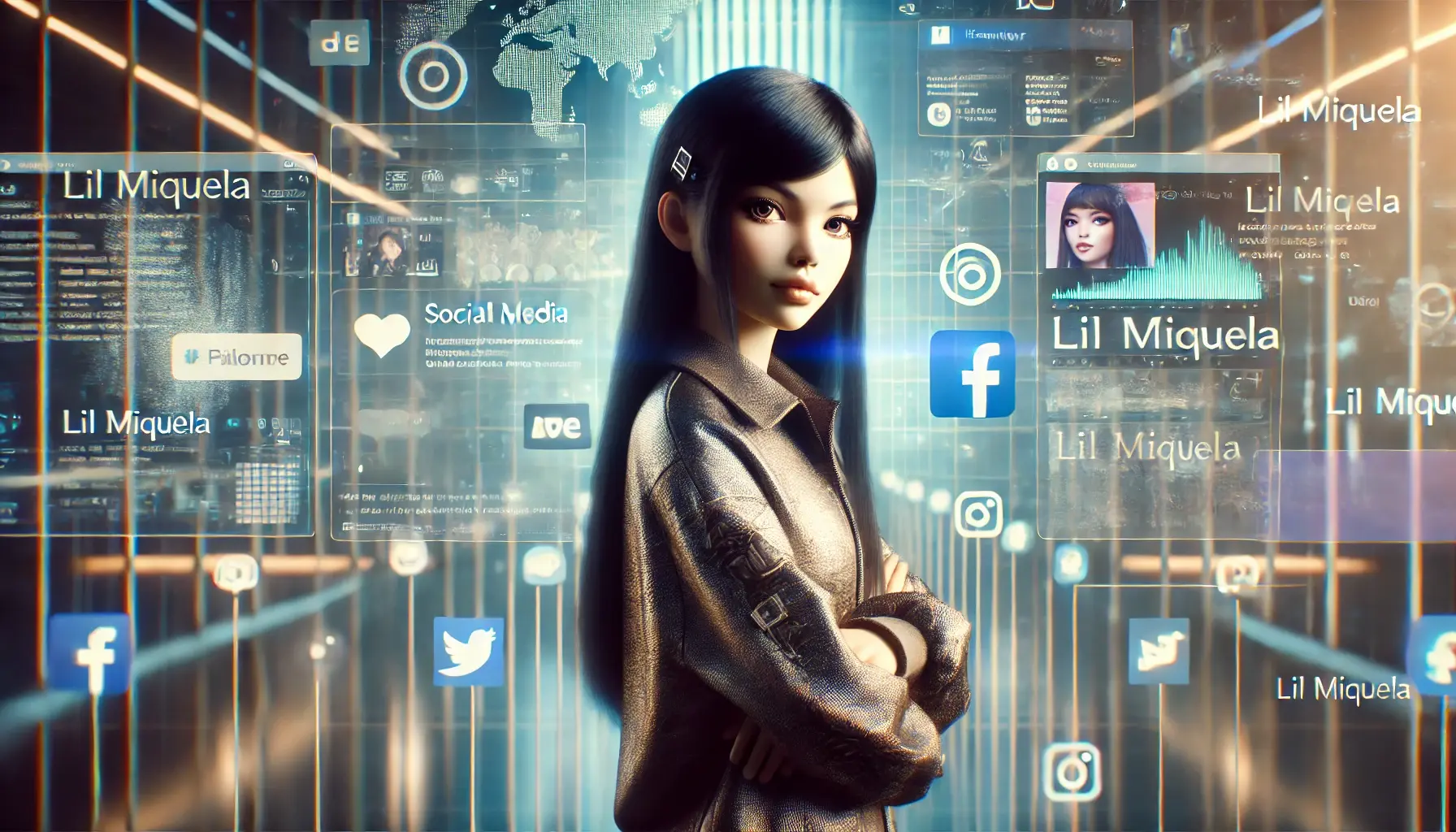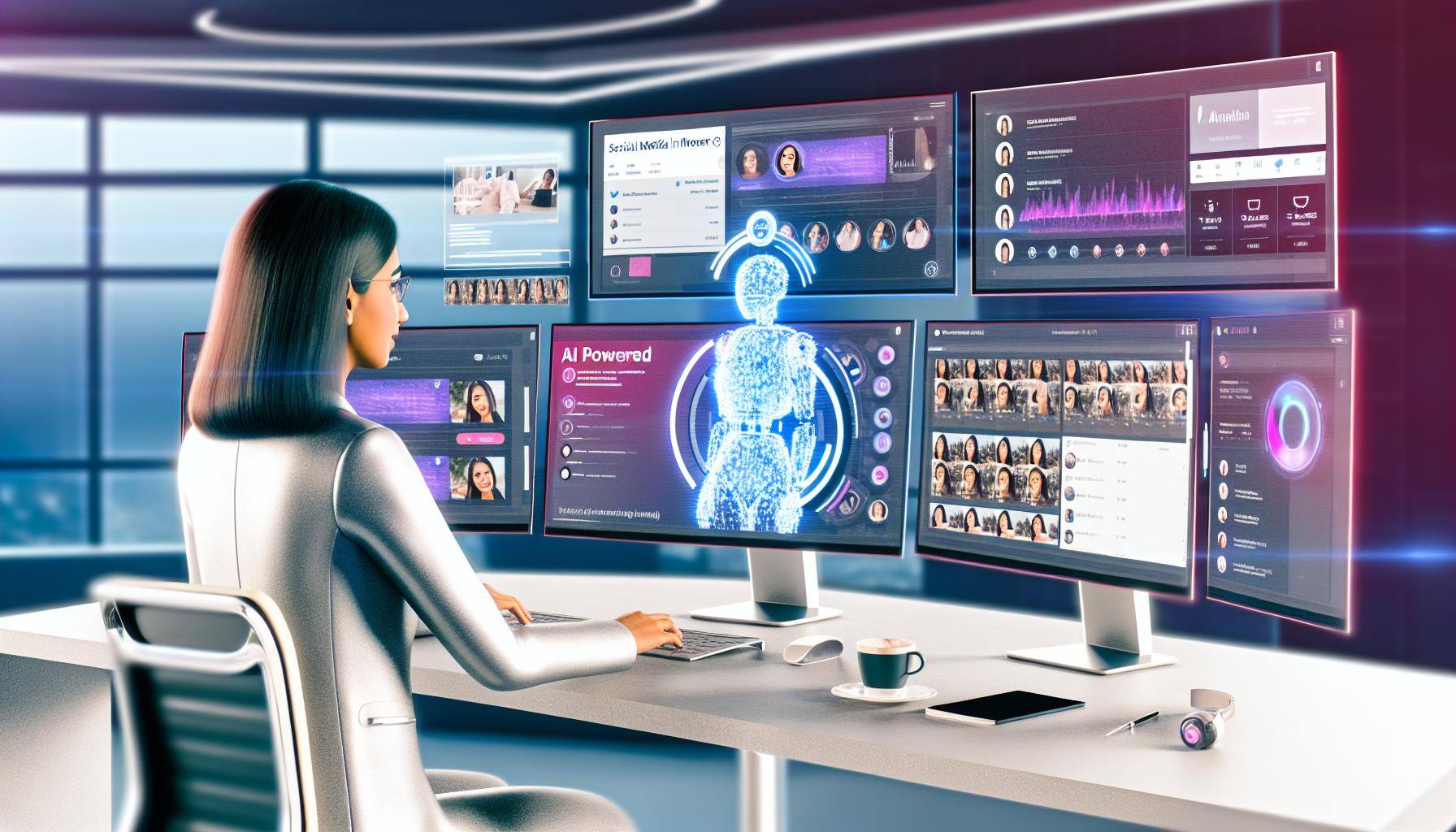6 min read
Is Lil Miquela Real? Exploring the Rise of Virtual Influencers
Introduction The world of social media and digital marketing has been revolutionized by the advent of virtual influencers. One of the most notable...
3 min read
The Amazing Team at Virtual Marketer Max : Jul 4, 2024 1:00:00 PM
In recent years, the world of influencer marketing has witnessed an interesting phenomenon - the rise of virtual influencers. With their impeccable digital appearances and engaging content, virtual influencers have captured the attention of millions, challenging traditional notions of what it means to be an influencer.
In this article, we will delve into the definition, history, importance, current trends, challenges, solutions, statistics & analytics report, future prospects, and latest updates surrounding virtual influencers.
A virtual influencer can be defined as a computer-generated fictional character created by advanced artificial intelligence (AI) and computer graphics technology. These virtual personalities are designed to emulate human-like behavior, having their unique personalities, interests, and values. Virtual influencers interact and engage with their audience through various social media platforms, just like their human counterparts.
Virtual influencers emerged in the mid-2010s, with the most notable and influential being Lil Miquela, introduced in 2016. Lil Miquela - Instagram AI influencer quickly gained a massive following, proving the potential of virtual influencers as viable marketing entities. Since then, other virtual influencers such as Shudu and Noonoouri have garnered significant attention, prompting brands to collaborate with them for advertising and promotional campaigns.
The rise of virtual influencers has revolutionized the world of marketing, offering brands an innovative and highly adaptable approach to connect with their target audience. Virtual influencers provide a unique combination of creativity, authenticity, and a connection to the digital generations, enabling marketers to reach new heights of engagement and influence in the online world.
Virtual influencers are continually evolving to match the preferences of their followers. Recent trends show that virtual influencers are delving into activism, supporting social justice causes, and raising awareness on important issues.
Additionally, virtual influencers are partnering with fashion brands and playing an active role in directing their virtual brand persona, product designs, and marketing strategies.
One of the primary challenges faced by virtual influencers is public perception and credibility. Skepticism exists regarding their authenticity and realness, as their very nature is based on digital fabrication. Additionally, virtual influencers face criticism for taking away job opportunities from real-life influencers. Furthermore, the constant need for technical advancement places an ongoing burden on creators to develop more realistic and engaging virtual personas.
Check this, AI Power: Influencers Redefining Instagram
To address credibility concerns, transparency in the digital world becomes crucial. Brands and virtual influencers can work towards building trust by openly acknowledging their virtual nature while maintaining authenticity by focusing on producing high-quality and relatable content.
Additionally, collaborations between virtual AI influencers and real-life influencers can bridge the gap between the virtual and physical realms, creating more authentic and diverse experiences.
Read this, Master the art of digital modeling and boost your online presence
According to a recent study conducted by Influencer Marketing Hub, the engagement rates for virtual influencers currently surpass those of real-life influencers, with an average of 2.7% for virtual influencers compared to 1.8% for human influencers. Furthermore, the study revealed that 55% of consumers believe virtual influencers will play a more prominent role in marketing campaigns in the future.
The future of virtual influencers appears bright, with forecasts pointing towards a significant rise in their popularity. Augmented reality (AR) and virtual reality (VR) advancements will make virtual influencers more immersive and interactive. As virtual influencers gain further acceptance, additional industries such as education, entertainment, and gaming are likely to explore and benefit from their capabilities.
In line with emerging trends, several beauty brands have recognized the potential of collaborating with virtual influencers to not only promote their existing products but also to co-create virtual products and cosmetic lines tailored to the digital realm.
By leveraging the creativity and digital presence of virtual influencers, these beauty brands are able to tap into a new market segment and offer unique, innovative beauty solutions that resonate with tech-savvy consumers.
Moreover, virtual influencers are making waves in the music and entertainment industry, expanding their reach beyond traditional social media platforms. With the ability to release their own music and host virtual performances, these digital personalities are captivating audiences and redefining the boundaries of entertainment in the digital age.
Their seamless integration into the music and entertainment scene showcases their versatility and influence across various industries, solidifying their status as key players in the ever-evolving realm of virtual media.
Virtual influencers have undoubtedly disrupted the traditional influencer marketing landscape in socialmedia world. Their impact is far-reaching, offering brands and marketers an innovative way to connect with their target audience. As the hype surrounding virtual AI influencers continues to grow, marketers need to remain informed about this evolving phenomenon to stay ahead in the digital marketing game. Are you interested to implement virtual influencers for your brand promotion. Visit: Virtual Marketer Max

6 min read
Introduction The world of social media and digital marketing has been revolutionized by the advent of virtual influencers. One of the most notable...

5 min read
AI Influencer Marketing In recent years, the rise of artificial intelligence (AI) has transformed the way society functions. AI has significantly...

4 min read
Expanding Brand Visibility through Influencers in the United States Social media influencers have become an integral part of our online world,...